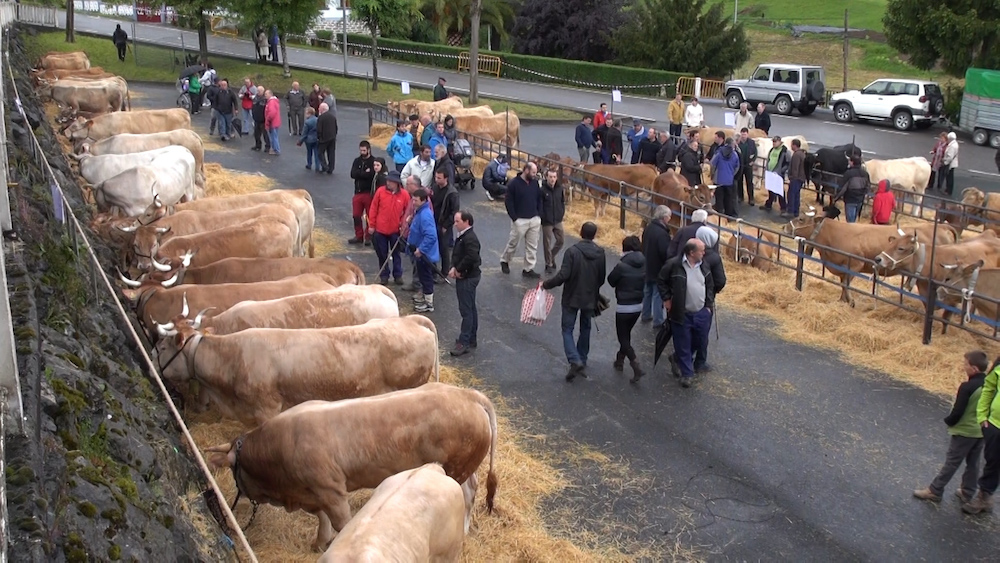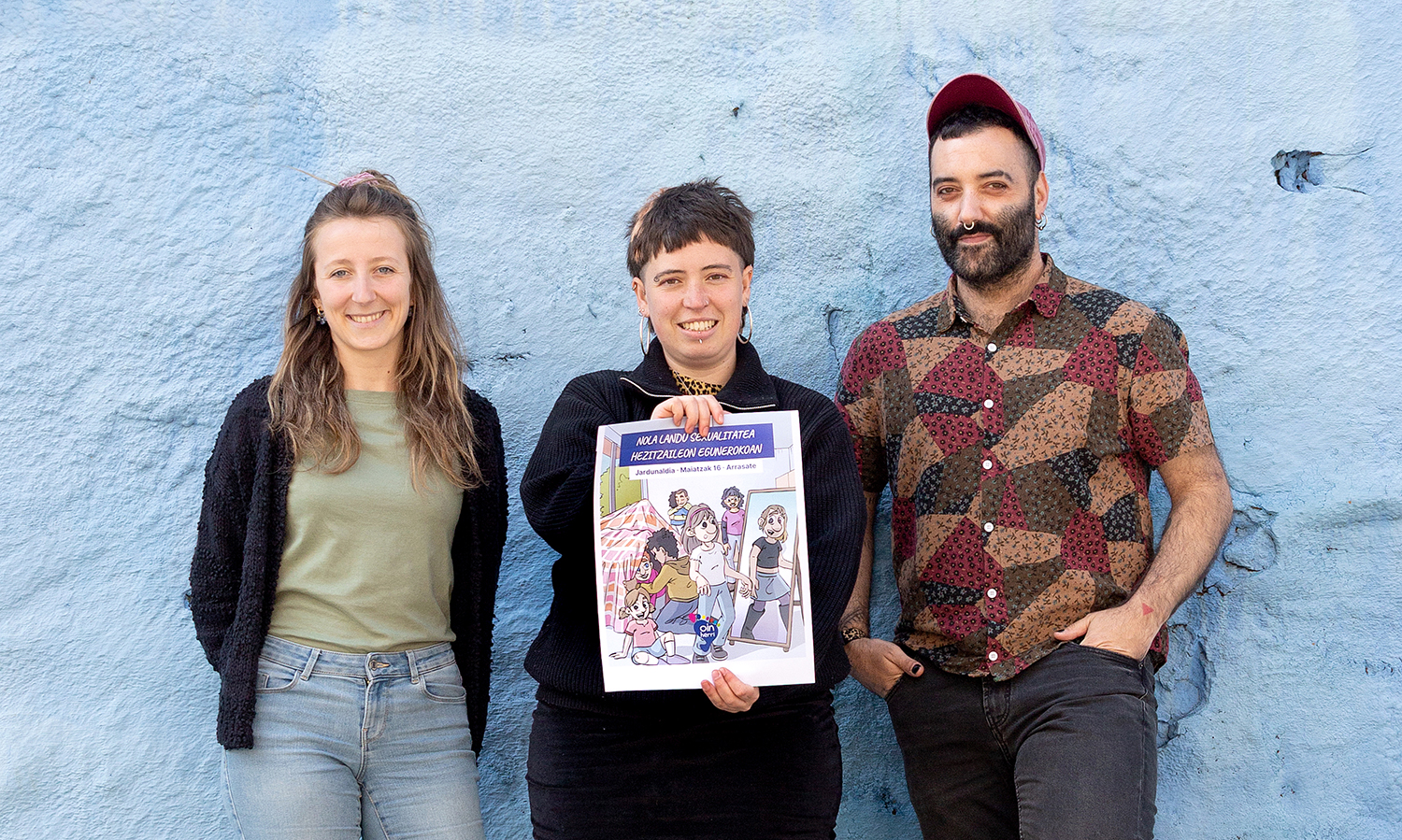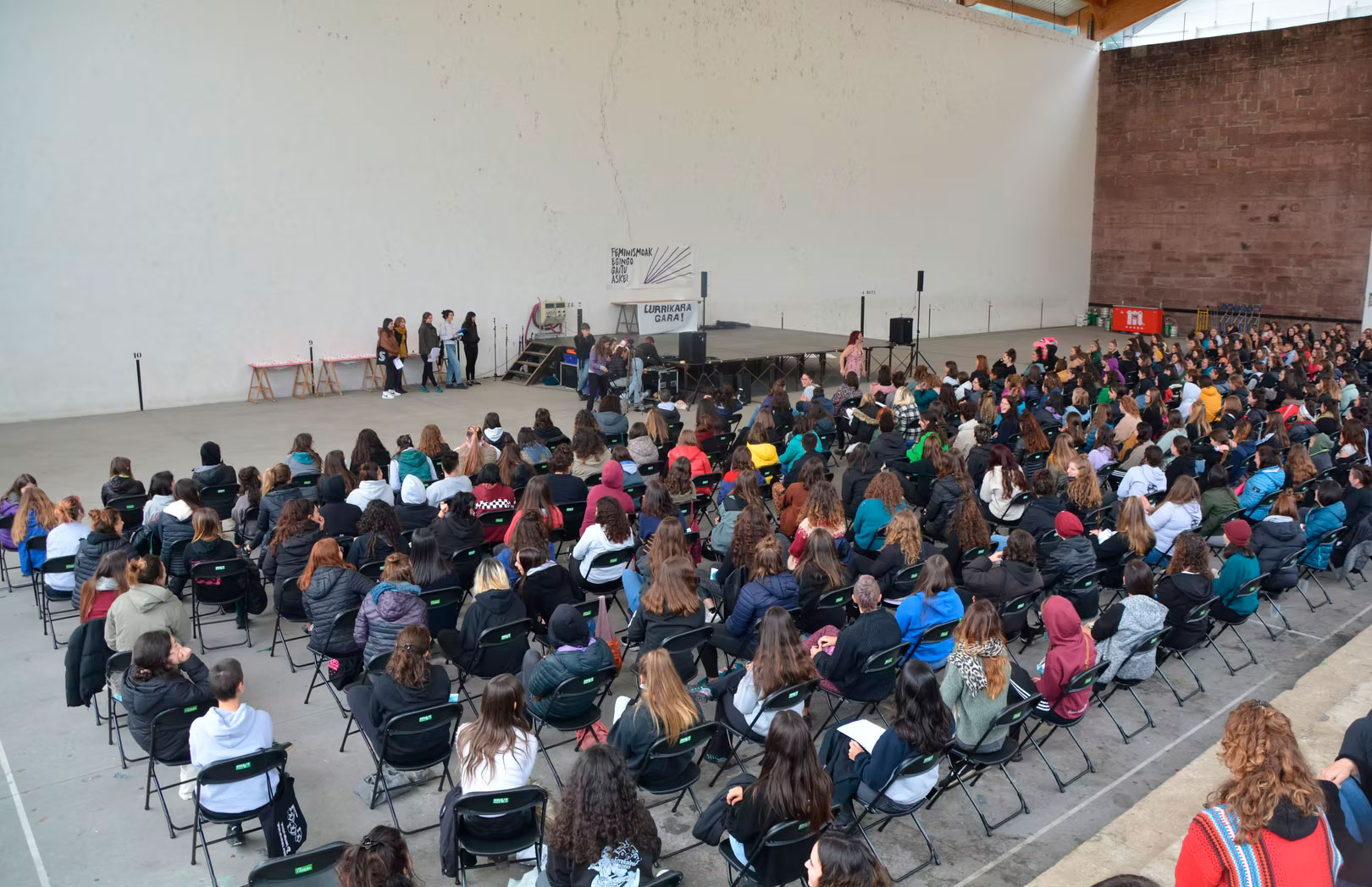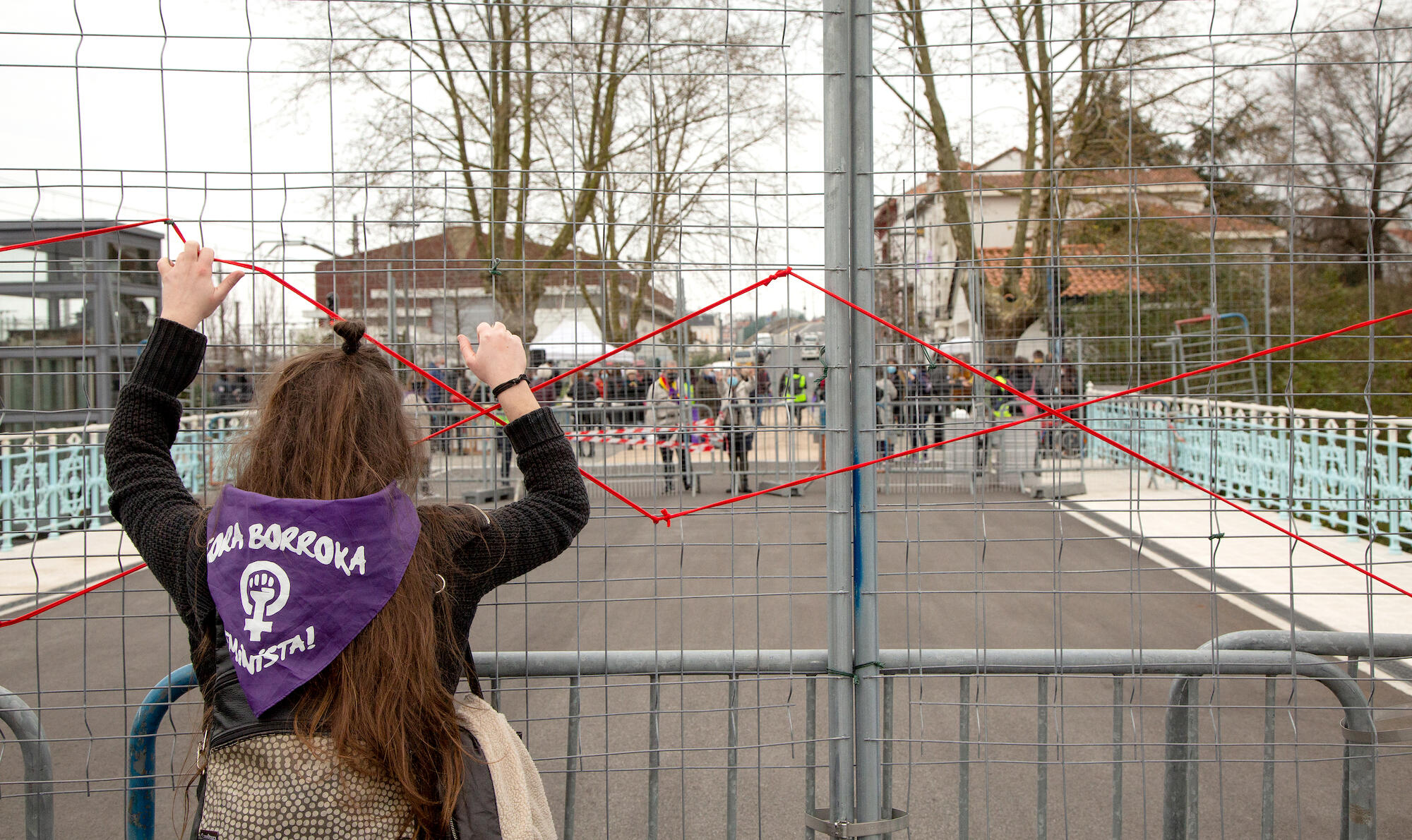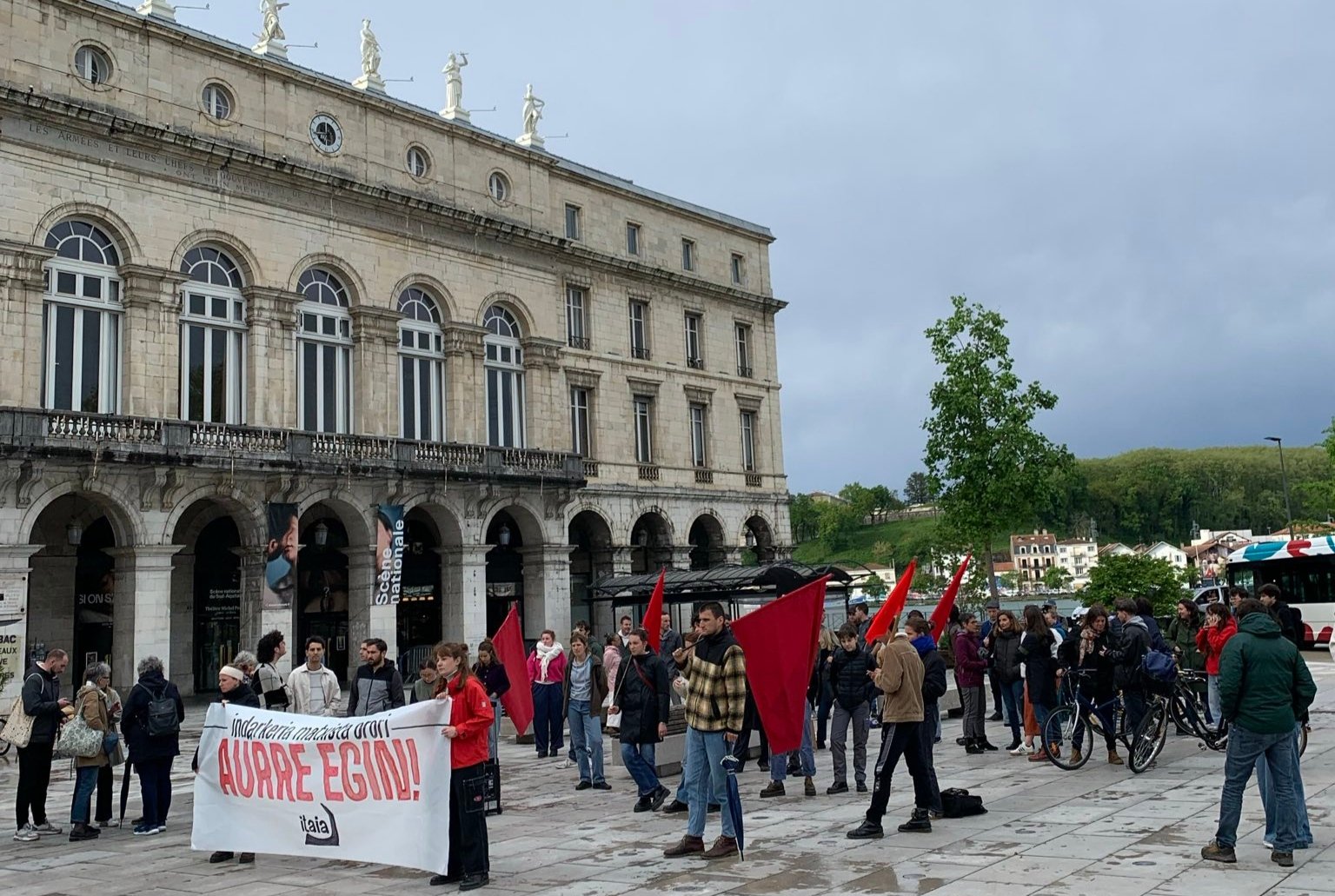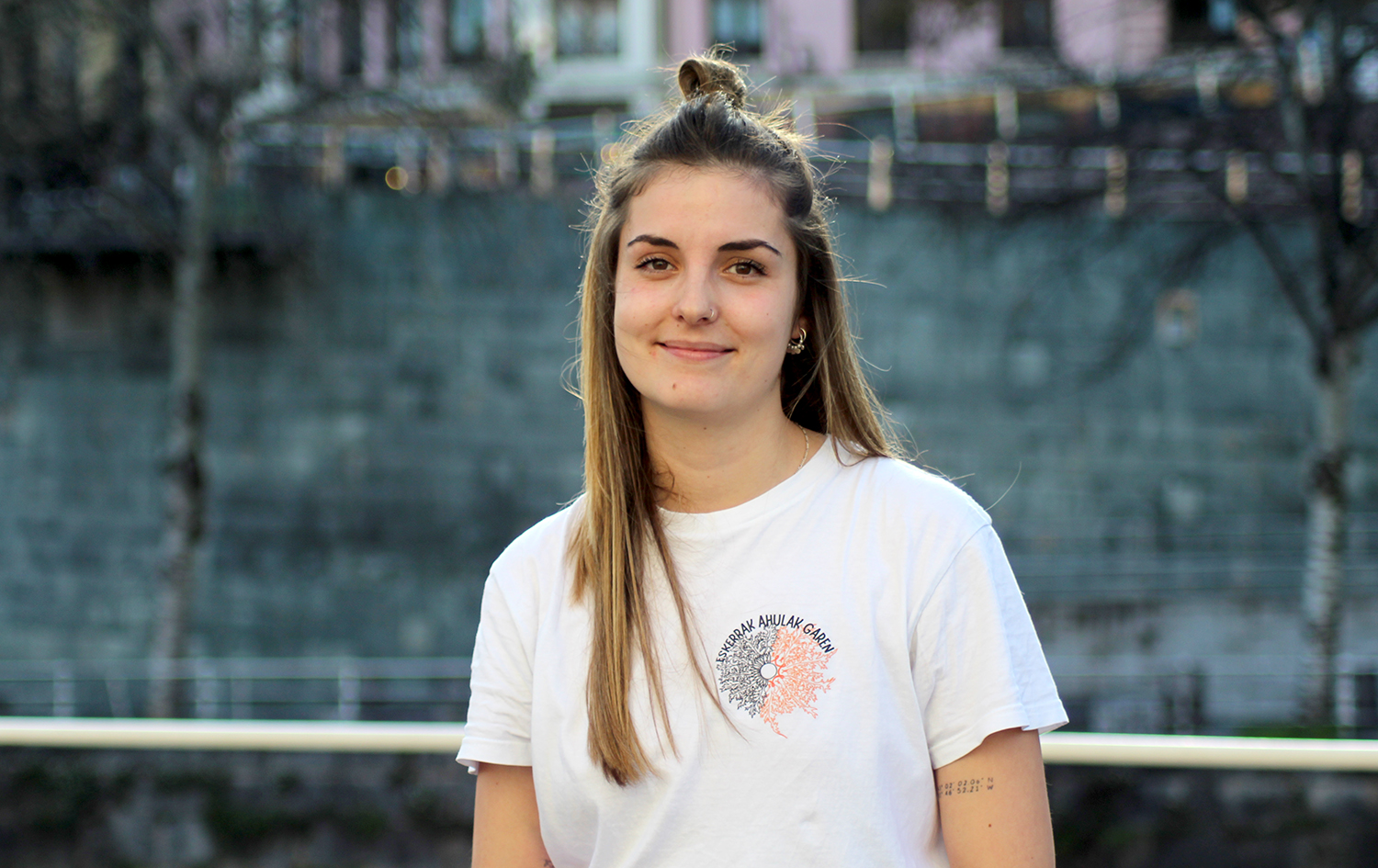The feminist movement will go to the street on March 8th to "break the system"
- The feminist movement has explained that COVID-19 has emerged as a "crisis of different dimensions" and has had a direct impact on feminized spaces. "This crisis did not start with the pandemic and now we are not going to be silent in the Feminist Movement of the Basque Country," he added. Demonstrations took place in Donostia-San Sebastián, Vitoria-Gasteiz, Bilbao, Baiona and Pamplona/Iruña.

The Feminist Movement of Euskal Herria has announced at a press conference on Thursday morning the demonstrations of March 8 and the reasons for going out on the street. The members of the movement have recalled that two years ago we "stood up and claimed the need to centralize lives" with the feminist strike and one year since March 8: "Since then, the context of the plague caused by COVID-19 has highlighted the crises of the different dimensions of this system. What's happened is it's not just a health crisis."
Under the motto "everything changes, everything changes, everything changes", mobilizations will take place on 8 March in many localities, also in the capitals. In Donostia-San Sebastian they will start at 18:30 from the Old Tunnel, in Vitoria-Gasteiz at 19:00 from the Plaza San Antón, in Baiona at 10:00 from the Hospital, in Bilbao at 19:00 from the Sacred Heart and in Pamplona at 19:00 and at 20:00 from the hulls and neighborhoods.
The Basque Government's Minister for Equality, Justice and Social Policies, Beatriz Artolazabal, has asked in relation to March 8 that "mass demonstrations" should not be held because the epidemiological situation remains "very serious" and the Spanish Government's Minister of Health, Carolina Darias, said that "I would not understand" this type of manifestation.
On the contrary, the members of the feminist movement have maintained the call and have reaffirmed that they will go to the streets with all guarantees of security. Thus, for example, the demonstrations will go through the wider streets: "Health care measures and mobility limits make the usual forms of mobilization difficult, but we're going to look for a way to make the street a whistle."
At a press conference, they highlighted the situation of thousands of women, "who have had to leave the market for care and care", especially in the area of working women in irregular situations. "To end the capitalist, heteropatriarchal, racist system, we have to organize ourselves into feminism and keep fighting cohesively. Precisely to collectivize the responsibilities of sustaining lives and radically change the power relations".
Sare sozialetako argitalpen baten bidez, otsailaren 23an, Ane Santesteban txirrindulariak (Errenteria, Gipuzkoa, 1990) endometriosia daukala iragarri zuen. Diagnostikoak lagundu egin dio ulertzen zergatik batzuetan gaizki sentitzen den bizikletan: “Kisteak aldaka okertzea... [+]
Errepikatu nirekin: Sara Millerey. Ez dezagun ahaztu bere izena. Transfeminizidioaren biktima da Millerey: gorrototzaile transmisogino batek torturatu zuen, besoak moztu zizkion eta bizirik bota zuen ibaiertz batera. Bi orduko agoniaren ondoren hil zen.
Errazagoa da J.K... [+]
Many Basque feminists have been disappointed to learn that writer Chimamanda Ngozi Adichie has externalized pregnancy, meaning that a surrogate has fertilized her baby for money.Adichie is the author of the essay We should all be feminists, among others. They have ignored the... [+]
Indartsua, irribarretsua eta oso langilea. Helburu pila bat ditu esku artean, eta ideia bat okurritzen zaionean buru-belarri aritzen da horretan. Horiek dira Ainhoa Jungitu (Urduña, Bizkaia, 1998) deskribatzen duten zenbait ezaugarri. 2023an esklerosi anizkoitza... [+]








